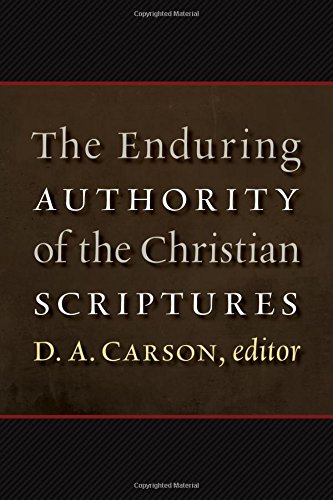A Brief Book Summary from Books At a Glance
Editor’s Note: Today we continue our series of “bonus” summaries covering all thirty-six chapters of the monumental volume, The Enduring Authority of the Christian Scriptures (D.A. Carson, ed.).
Chapter 23: The Problem of the New Testament’s Use of the Old Testament
by Douglas J. Moo and Andrew David Naselli
(Summarized by David Rennalts)
Moo and Naselli set out to address the “relationship between the meaning of OT texts in their own contexts and the meaning that the NT authors ascribe to these texts.” They focus specifically on the question of whether the NT authors erred in the assertions they made concerning the OT text, and argue that such errors would be “fundamental” in nature, and not simply “incidental.” The question, therefore, has great import for those who wish to affirm the authority and infallibility of Scripture.
The authors begin by describing categories of alleged difficulties which tend to overstate the problem. They rule out the dictation theory of inspiration, define the meaning of the NT’s fulfillment language, and point to the different ways in which the NT authors appropriate the OT. There is no threat to inerrancy when NT authors are merely using OT language as a vehicle of expression, applying general OT principles to contemporary situations, or representing alternative points of view.
The problem is apparent, however, when “the force of the NT’s argument . . . depends on the OT’s proper, authoritative meaning,” because “sometimes the NT appears to give the OT meanings that we cannot demonstrate exegetically.” Moo and Naselli survey and evaluate nine popular solutions:
- Fideism simply discounts exegetical procedures that cannot reach the NT conclusions and trusts that the NT authors were correct in their interpretation. This approach shows a properly humble deference to Scripture, but has no explanatory insight.
- Subjectivism “eliminates the problem by arguing that all meaning and interpretation are inevitably subjective . . . Yet it is ultimately nonsensical and disastrous to the Christian faith.”
- Appeals to Jewish exegetical methods argue that the NT authors were consistent with the exegetical principles of their own day. This may be partly true, but. . .
The remainder of this article is premium content. Become a member to continue reading.
Already have an account? Sign In
